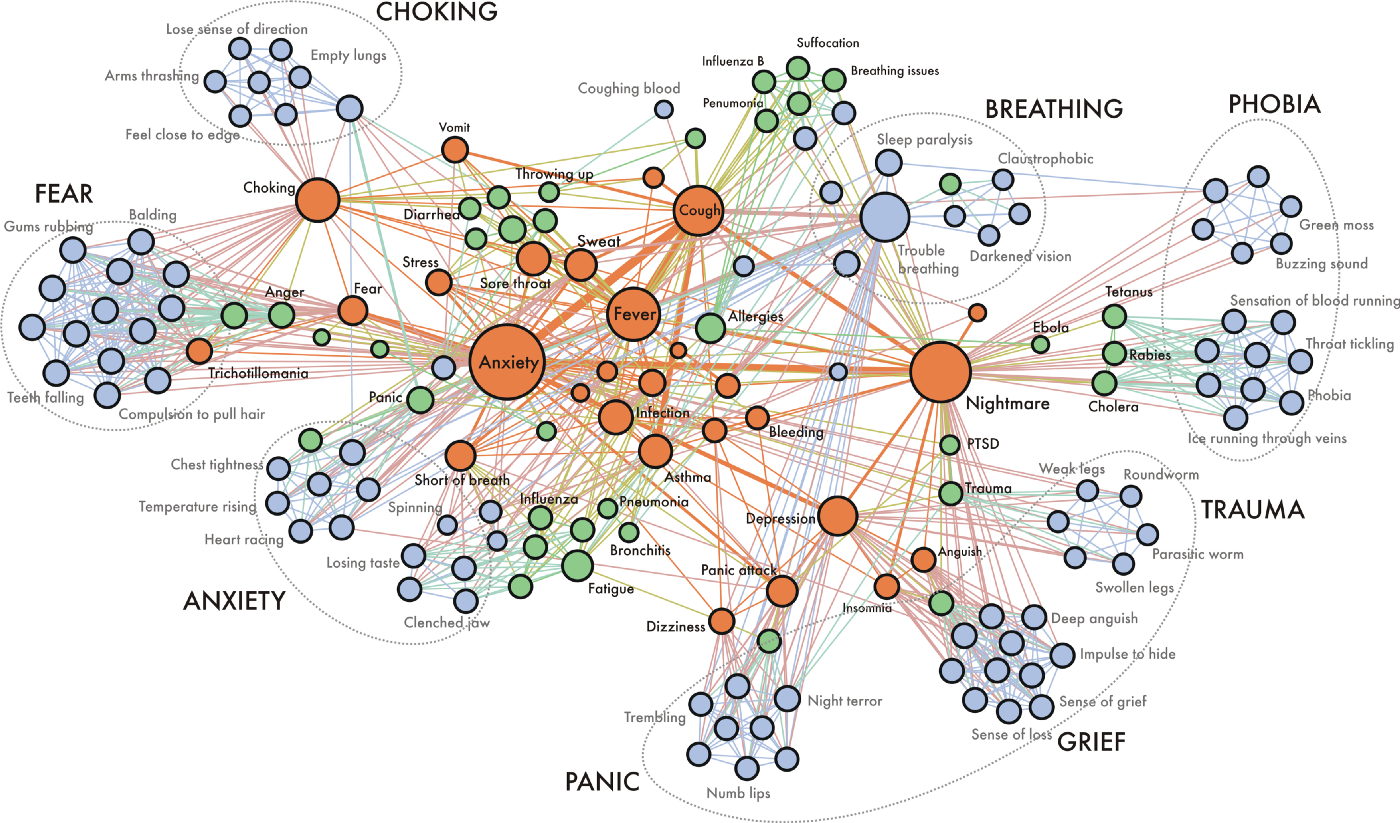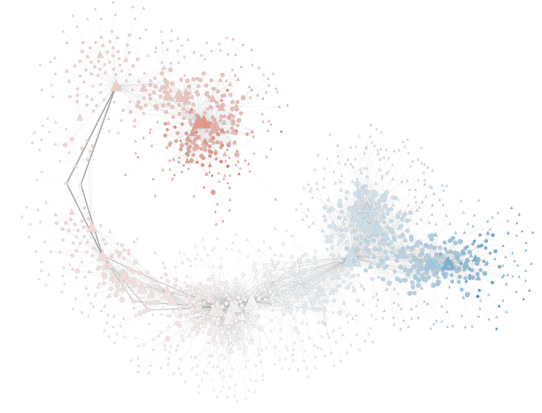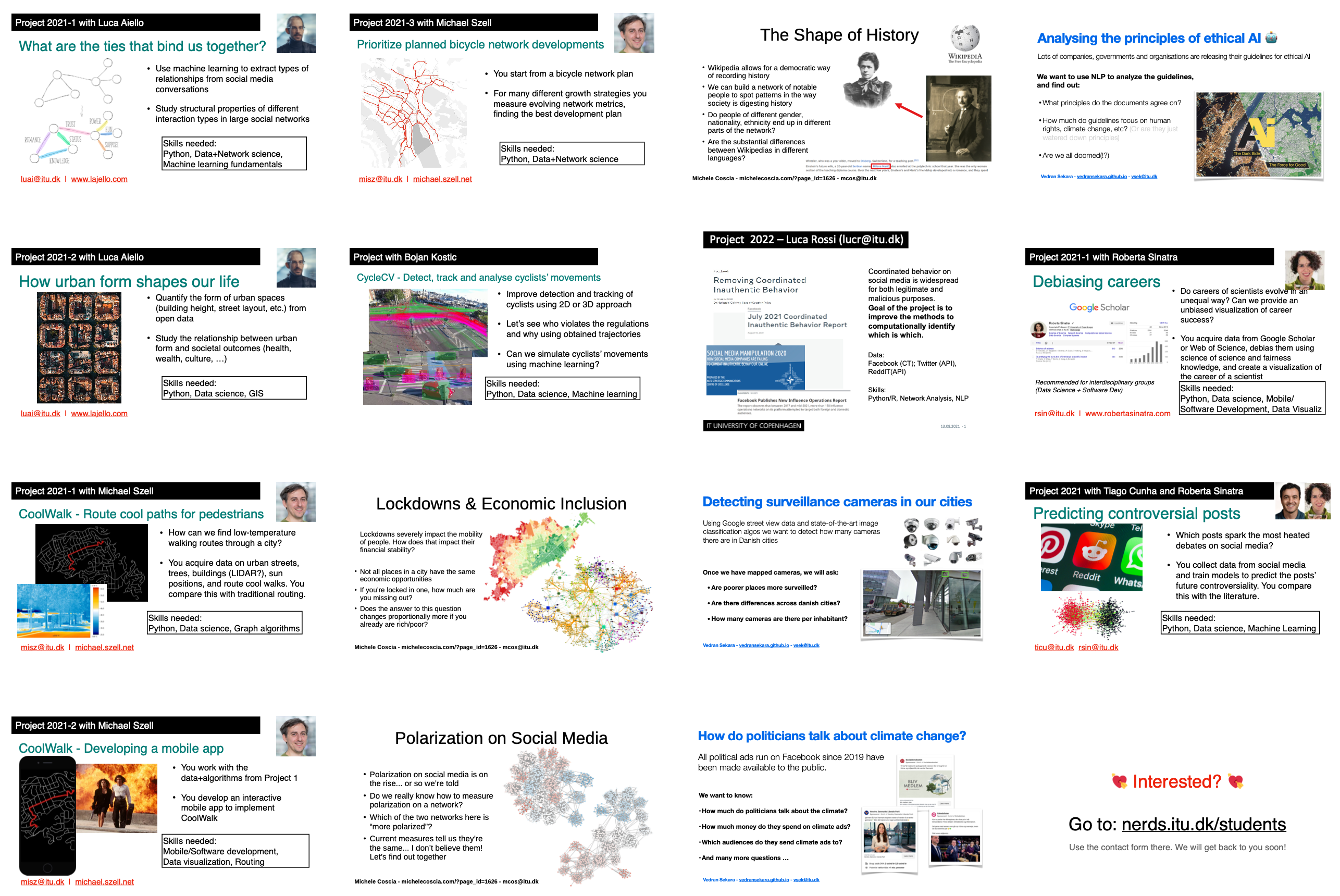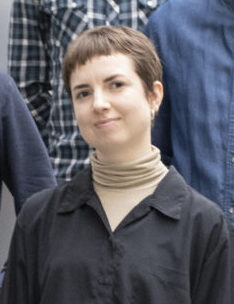We start 2022 with two new papers!
-
- Epidemic dreams: dreaming about health during the COVID-19 pandemic, by S. Šćepanović, L.M. Aiello, D. Barrett and D. Quercia, published in Royal Society Open Science

Luca and collaborators ask: Why were our dreams during the pandemic weird? Their computer analysis unearthed buried psychological reactions to the COVID-19 pandemic: expressions in waking life reflected a linear and logical thought process and, as such, described realistic symptoms or related disorders (e.g. nasal pain, SARS, H1N1); those in dreaming life reflected a thought process closer to the visual and emotional spheres and, as such, described either conditions unrelated to the virus (e.g. maggots, deformities, snake bites), or conditions of surreal nature (e.g. teeth falling out, body crumbling into sand). - How minimizing conflicts could lead to polarization on social media: An agent-based model investigation, by M. Coscia and L. Rossi, published in PLOS ONE

The paper explores an agent based model on how policing content and backlash on social media (i.e. conflict) can lead to an increase in polarization for both users and news sources. We find that the tendency of users and sources to avoid policing, backlash and conflict in general can increase polarization online. Specifically polarization comes from the ease of sharing political posts, intolerance for opposing points of view causing backlash and policing, and volatility in changing one’s opinion when faced with new information. On the other hand, it seems that the integrity of a news source in trying to resist the backlash and policing has little effect.
Learn more on Michele’s blogpost.
- Epidemic dreams: dreaming about health during the COVID-19 pandemic, by S. Šćepanović, L.M. Aiello, D. Barrett and D. Quercia, published in Royal Society Open Science



